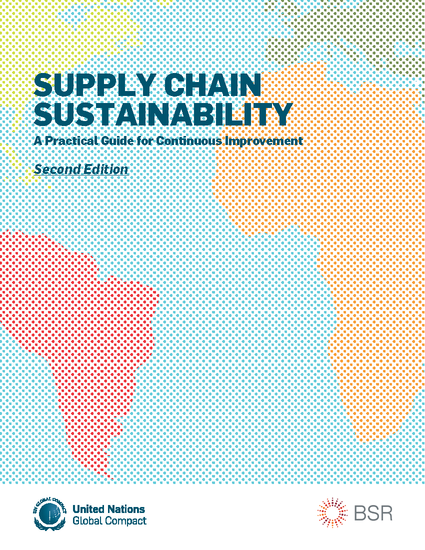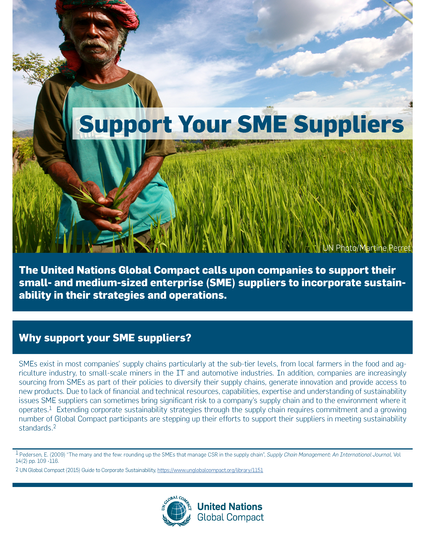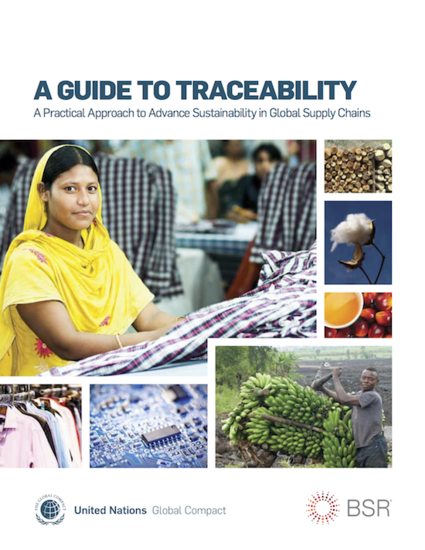A company’s entire supply chain can make a significant impact in promoting human rights, fair labour practices, environmental progress and anti-corruption policies.
However, UN Global Compact participants rank supply chain practices as the biggest challenge to improving their sustainability performance. Extending the UN Global Compact’s Ten Principles into the supply chain can be difficult because of the scale and complexity of many supply chains.
The UN Global Compact encourages companies to make sustainability a priority from the top of the organization. If the chief executive sees the supply chain as an extension of their workforce and community, the company can set expectations for best practices across its supply chain. These can include key areas such as selection, training, auditing and remediation.
Doing so promotes a broader understanding within an organization of how decisions made, beyond procurement, can affect the supply chain. For example, legal staff,
product developers and marketing all can have an impact. In addition, companies must look at their supply chain as a whole, and consider the suppliers that may have the most significant challenges to address.
To help, the UN Global Compact we develop guidance, such as the Decent Work Toolkit for Sustainable Procurement, the Guide to Traceability and the Practical Guide for Continuous Improvement to assist companies in developing more sustainable supply chain practices. We also host Academy sessions and training on topics such as sustainable procurement, decent work occupational health and safety and family friendly workplaces in the supply chains.
Because supply chain sustainability is a cross-cutting issue, we apply this work across all four UN Global Compact issue areas (human rights, labour, environment and anti-corruption).
Current Patrons:
Current Sponsors:






